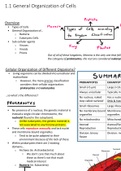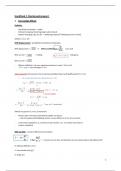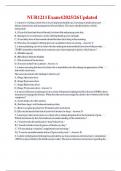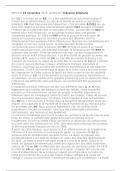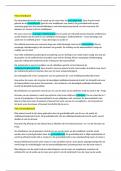Life in West Germany: Society
INTEGRATION OF THE TRADE UNIONS
Trade unions had begun to be recognised during the occupation by the western powers, with
many of the FRG developments originating in the British zone.
As a result, in the years from 1949, a new understanding emerged between labourers, employers
and the government:
- Firstly, pre-Nazi internal conflicts between the different unions were overcome when the system
was simplified in 1949 by the creation of 16 workers’ unions - one per industry. These unions
were affiliated to one umbrella organisation, the German Federation of Trade Unions, and did
not see themselves as separate organisations. Union activities were co—ordinated in the
individual companies so they worked together rather than in conflict with each other - by doing
this they became much stronger in their negotiations with the government and employers’
associations.
- Secondly, although the workers’ unions and the SPD had wanted a complete restructuring of
the economy and society (e.g. through redistribution of property, nationalisation of key
industries and a planned economy). Adenauer’s government recognised the importance of
achieving industrial peace … he therefore appeased the unions by introducing the Co-
determination Law of 1951 = gave workers their own representatives on managerial boards in
the coal, iron and steel industries.
- Thirdly, the principle of co-determination was extended by the Works’ Constitution Law of 1952
= created a works council for all employees of companies with 500+ workers.
These initiatives appeared to be very successful = West Germany had very few strikes compared
to Britain and France//the industrial peace resulted in much improved conditions for the union
members. In the end, the unions started to act as critical partners rather than antagonists to the
employers.
THE WELFARE STATE
The SPD had campaigned for a completely new tax-based system aimed at thoroughly reforming
the welfare state. However, instead, the essence of the insurance system (initiated by Bismarck
and developed by Weimar) was kept as the model by the government in the 1950s… the system
of social security was reinstituted, but expanded for:
- unemployment benefit
- Accident insurance
- Sickness insurance
- Pensions (one of the most important achievements after the war was the reform of the pension
insurance system in 1957)
- Public assistance for desperate cases
- Family welfare (supported by measures such as tax-based child allowances and from 1954, the
introduction of the child benefit)
House building played an important part in restoring the economy, but the emphasis clearly had a
social dimension. Throughout the 1950s the state supported and subsidised the public and
private building sector to alleviate the housing shortage and create affordable accommodation,
especially for families. From 1949 to 1961 there were 6 million new flats built and half the new
accommodation was social housing or council homes.
Further reforms were to be introduced in the 1960s, yet the policies and laws of the FRG
government had laid the basis for a highly advanced welfare state… it compared very well in this
field with other Western industrialised societies.
EDUCATION
From 1945, the Allies had aimed to reshape the German educational system as Nazi influence in
this area had had such a devastating effect. They wanted educational reforms which would make
Germany a democratic society. In the Soviet Zone educational reform was introduced
fundamentally and rapidly, yet it never really happened in the Western zones.
The Western powers couldn’t agree on a common educational policy:
- the USA strongly pushed for a US-style comprehensive school system.
- The British were less directive and more pragmatic by simply issuing guidelines
- German regional authorities resisted the Allied proposals.
As a result, when responsibility for education was passed to the Lander in 1949, it meant that the
traditional school system was NOT significantly changed, and the majority of Germans welcomed
INTEGRATION OF THE TRADE UNIONS
Trade unions had begun to be recognised during the occupation by the western powers, with
many of the FRG developments originating in the British zone.
As a result, in the years from 1949, a new understanding emerged between labourers, employers
and the government:
- Firstly, pre-Nazi internal conflicts between the different unions were overcome when the system
was simplified in 1949 by the creation of 16 workers’ unions - one per industry. These unions
were affiliated to one umbrella organisation, the German Federation of Trade Unions, and did
not see themselves as separate organisations. Union activities were co—ordinated in the
individual companies so they worked together rather than in conflict with each other - by doing
this they became much stronger in their negotiations with the government and employers’
associations.
- Secondly, although the workers’ unions and the SPD had wanted a complete restructuring of
the economy and society (e.g. through redistribution of property, nationalisation of key
industries and a planned economy). Adenauer’s government recognised the importance of
achieving industrial peace … he therefore appeased the unions by introducing the Co-
determination Law of 1951 = gave workers their own representatives on managerial boards in
the coal, iron and steel industries.
- Thirdly, the principle of co-determination was extended by the Works’ Constitution Law of 1952
= created a works council for all employees of companies with 500+ workers.
These initiatives appeared to be very successful = West Germany had very few strikes compared
to Britain and France//the industrial peace resulted in much improved conditions for the union
members. In the end, the unions started to act as critical partners rather than antagonists to the
employers.
THE WELFARE STATE
The SPD had campaigned for a completely new tax-based system aimed at thoroughly reforming
the welfare state. However, instead, the essence of the insurance system (initiated by Bismarck
and developed by Weimar) was kept as the model by the government in the 1950s… the system
of social security was reinstituted, but expanded for:
- unemployment benefit
- Accident insurance
- Sickness insurance
- Pensions (one of the most important achievements after the war was the reform of the pension
insurance system in 1957)
- Public assistance for desperate cases
- Family welfare (supported by measures such as tax-based child allowances and from 1954, the
introduction of the child benefit)
House building played an important part in restoring the economy, but the emphasis clearly had a
social dimension. Throughout the 1950s the state supported and subsidised the public and
private building sector to alleviate the housing shortage and create affordable accommodation,
especially for families. From 1949 to 1961 there were 6 million new flats built and half the new
accommodation was social housing or council homes.
Further reforms were to be introduced in the 1960s, yet the policies and laws of the FRG
government had laid the basis for a highly advanced welfare state… it compared very well in this
field with other Western industrialised societies.
EDUCATION
From 1945, the Allies had aimed to reshape the German educational system as Nazi influence in
this area had had such a devastating effect. They wanted educational reforms which would make
Germany a democratic society. In the Soviet Zone educational reform was introduced
fundamentally and rapidly, yet it never really happened in the Western zones.
The Western powers couldn’t agree on a common educational policy:
- the USA strongly pushed for a US-style comprehensive school system.
- The British were less directive and more pragmatic by simply issuing guidelines
- German regional authorities resisted the Allied proposals.
As a result, when responsibility for education was passed to the Lander in 1949, it meant that the
traditional school system was NOT significantly changed, and the majority of Germans welcomed

